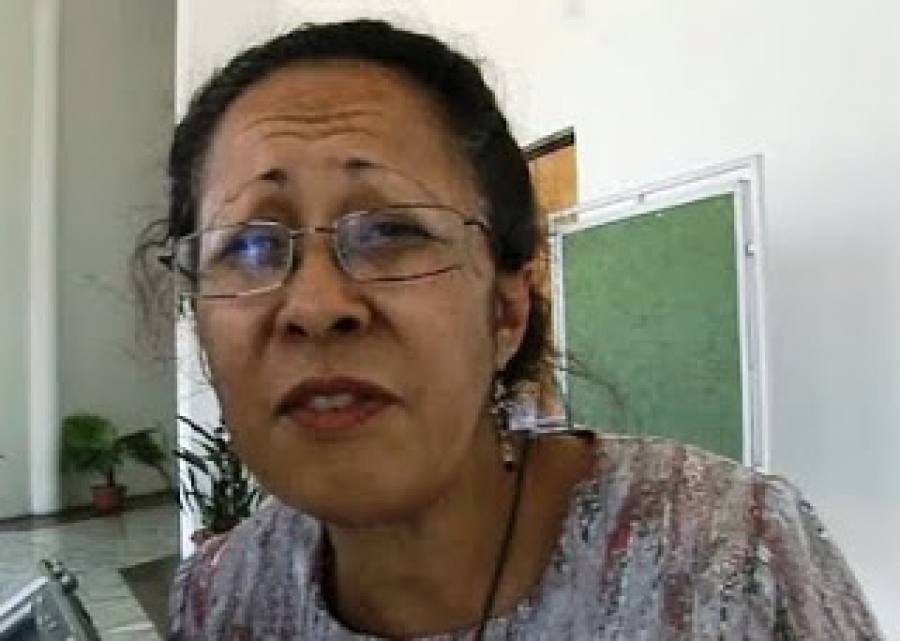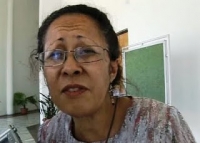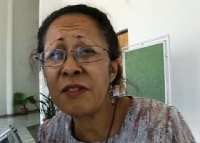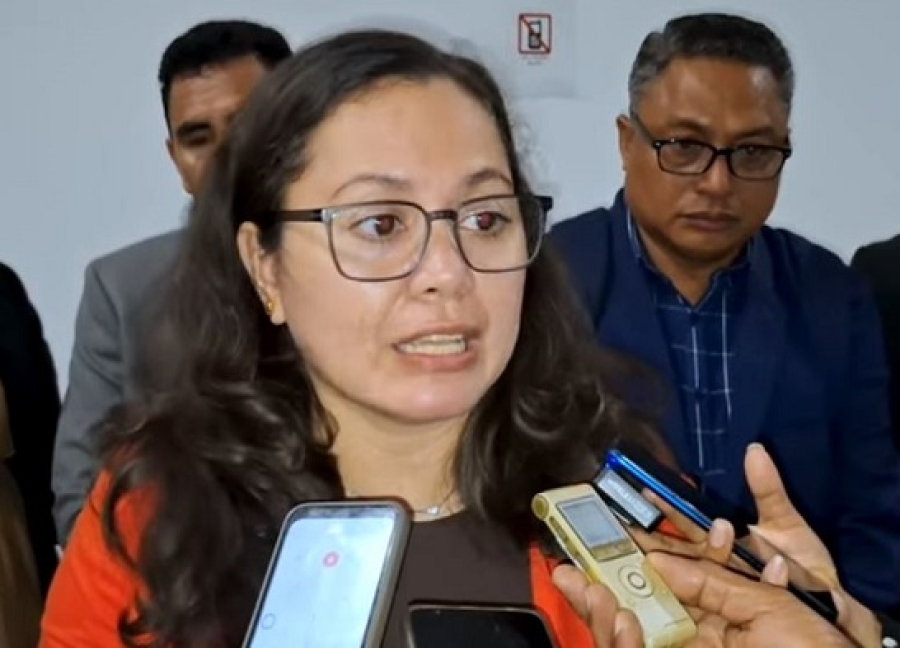In the lengthy expose, the ABC outlined how Pires has been sentenced to seven years' jail, and sought to have her appeal referred to a court in Portugal on the grounds Timor-Leste's judges were biased against her and denied her a fair trial.
said the District Court in Dili found Pires guilty in December of "crimes of economic participation in business".
Prosecutors alleged she corruptly awarded two contracts for 260 hospital beds and equipment to her husband Warren Macleod's company Mac's Metalcraft, based at Dandenong South in Melbourne.
However, the defence argued she never approved or signed the contracts.
The contracts, worth more than $1 million, were to supply hydraulic and orthopaedic beds to Dili's Guido Valadares Hospital.
Timor-Leste's former Vice Minister for Health, MadalenaHanjam, was sentenced to four years for her role in the alleged corruption.
Prosecutors in Dili have now lodged an appeal to increase Pires' sentence to 10 years and Hanjam's sentence to seven.
During the trial prosecutors argued Pires had in 2012, as then Finance Minister, personally approved the funding and contracts for the beds as "an emergency", namely to respond to an outbreak of dengue fever in early 2012.
In the case against her, the prosecution argued there was no such dengue outbreak at the time, that the beds were unnecessary, they were not delivered until 2013, they had remained unused and in their packaging therefore, Timor-Leste's Government had incurred a loss.
Prosecutors cited two occasions in 2012 where the then ministers had lunched in Dili with Pires's husband, allegedly to discuss the contracts.
Pires'sdefence counsel argued she regularly had lunch with all government ministers and if her husband was in Dili there was nothing illegal or suspicious about him accompanying them.
The defence also argued the dengue fever outbreak was widely documented and that key witnesses including two former prime ministers had attested to the desperate need for new beds at Guido Valadares Hospital.
former Prime Minister, Jose Ramos-Horta, reportedly visited the hospital at the time.
The defence counsel said in its closing arguments Mr Ramos-Horta had seen a "large number of sick people sleeping on the floor".
"He often saw two children on one bed. He said there was an 'epidemic'," the closing argument stated.
Another witness had reported the hospital's "beds, mattresses, pillows and linens were from the time of the Indonesian occupation and that they were rusty and infested with bedbugs, and the mattresses and sheets with blood stains".
Furthermore, the Ministry of Health had identified Mac's Metalcraft as "the only supplier of hydraulic beds for orthopaedic and the ICU (intensive care unit) and […] the same beds are used in many hospitals in Australia".
Another former Prime Minister, XananaGusmao, gave evidence that no Timorese company manufactured such beds.
Pires's lawyer argued the trial was unbalanced and unfair from the outset and prosecutors had decided the defendants were guilty and sought to find evidence.
However, the prosecution alleged Pires had colluded with Hanjam and her husband to award the contracts.
A letter from February 2012 viewed by the ABC, shows Pires had written to Hanjam, who was then vice minister for health, advising that her "request for funds … to purchase equipment has been approved by the Prime Minister [XananaGusmao]".
"With this approval, your ministry can now proceed to start the implementation of this transaction," the letter said.
Both women have lodged appeals against their convictions.
Pires, who left the country before the sentence was handed down, is now in Portugal. While calls are being made to force Pires back to Timor-Leste, Portugal or indeed any country has an extradition treaty with Timor-Leste.
She has also lodged a formal request to have her case referred to a court in Portugal, on the grounds Timor-Leste's judges were prejudiced against her and lacked the "capacity or will to ensure justice".
In a recent letter to President TaurMatanRuak, Pires complained of "serious inaccuracies and irregularities within [Timor-Leste's] judicial system", and proclaimed her innocence.
She appealed to him to establish an international commission of "eminent, reputable and renowned specialists to examine not just the details of my case but the inherent deficiencies in the system".
"The Timorese people rightly expect the process through which justice is administered to be trustworthy, independent, transparent, efficient and fair," the letter said.
"I was not involved in any way in the awarding of the contracts. Moreover, the procurement systems are such that I simply could not have been involved even if I wanted to.
"The procurement of goods and services in this type of situation was the sole domain of the responsible ministry, in this case the Ministry of Health.
"They, and they alone, had the authority to decide what to purchase, and who to purchase it from.
"Indeed, it is clear and undeniable that I did not decide to purchase beds, that I did not choose the supplier of the beds, that I did not negotiate the contracts, that I did not sign the contracts, that I did not approve the contracts and that I did not order the payment of the beds.
"That was all done in the Ministry of Health, which was the competent entity and did what it had to do in accordance with the existing laws."Gusmao, now Timor-Leste's Minister of Planning and Strategic Investment, recently wrote a separate letter (published in the Independente January 30) to Ruak, proclaiming Pires's innocence and accusing the judiciary of corruption.
Pires said the Dili District Court rejected her request to have her appeal heard in Portugal, but she is now appealing against that decision.
The court has made no public comment but senior legal figures in Dili have defended the judicial process and accused Gusmao of political interference.









